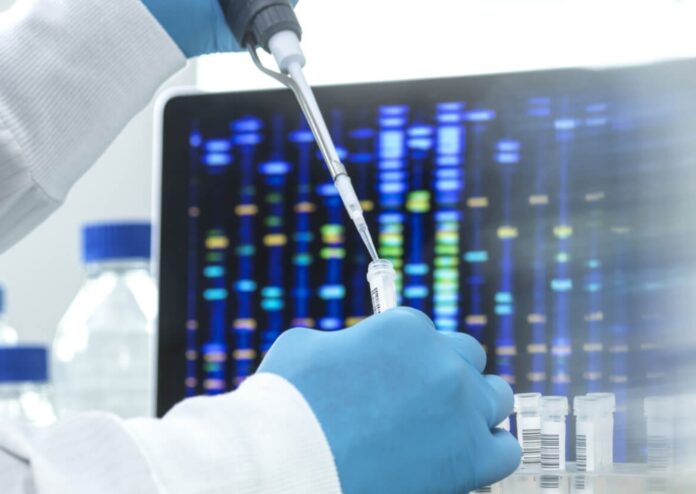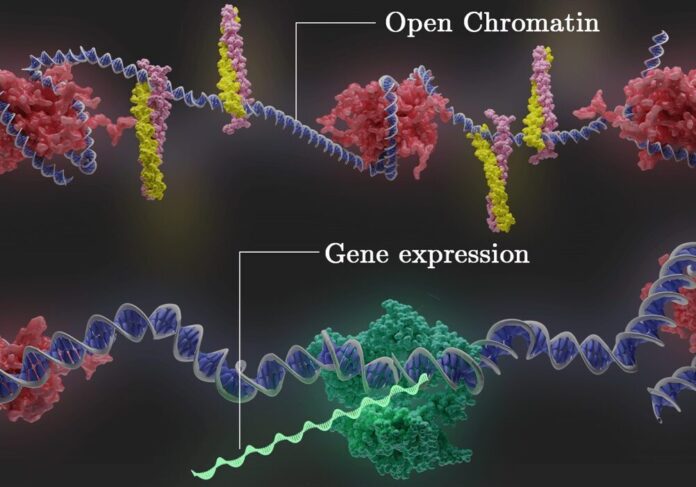Gene expression services play a pivotal role in unraveling the complex language of genes, allowing researchers to decode their functions and mechanisms.
This article explores the significance of these services in understanding genetic processes, discussing their workings, applications, and recent technological advancements.
Moreover, it highlights the challenges faced in this field and presents future directions for services.
By delving into the intricacies, we can unlock new insights into the fundamental building blocks of life.
The Importance of Gene Expression Services
The significance of gene expression services lies in their ability to accurately decode and interpret the intricate language of genes. This analysis is a crucial step in understanding how genes function and how they are regulated. By studying it, scientists can determine which genes are active in specific tissues or under certain conditions. This information helps unravel the complex network of gene regulation mechanisms that control various biological processes.
These services provide the tools and expertise needed to measure levels and identify changes in gene activity. This knowledge is essential in fields such as genetics, molecular biology, and medicine, as it allows researchers to gain insights into disease mechanisms, develop targeted therapies, and assess the efficacy of treatments.
How Gene Expression Services Work
To understand how protein expression services work, one must first grasp the intricacies of gene regulation mechanisms.
Gene expression analysis involves the study of how genes are activated or turned off in different cells or tissues, enabling researchers to understand the underlying molecular processes.
One common approach is profiling, which involves measuring the levels of messenger RNA (mRNA) molecules in a sample.
This provides valuable information about which genes are actively being transcribed and can help identify key genes involved in specific biological processes or diseases.
It can be performed using various techniques, such as microarrays or RNA sequencing, allowing researchers to gain insights into the complex language of genes and unravel their functions in health and disease.

Applications of Gene Expression Services
These services provide invaluable insights into the practical applications of understanding gene regulation mechanisms.
One of the key applications is profiling, which involves the measurement of levels in different biological samples. This technique enables researchers to identify genes that are differentially expressed in various conditions, such as disease states or drug treatments. Profiling can help in the identification of potential biomarkers for diseases, as well as in understanding the underlying molecular mechanisms.
Another important application is protein expression analysis, which involves the interpretation of data to gain a deeper understanding of biological processes and pathways. By analyzing patterns, researchers can uncover important regulatory networks and identify potential therapeutic targets.
Advancements in Gene Expression Technology
Advancements in this technology have revolutionized our ability to decipher the language of genes.
Analysis and protein expression profiling are two key areas where significant progress has been made.
Gene expression analysis refers to the study of how genes are activated or deactivated in response to various factors. This technology allows researchers to understand the complex mechanisms underlying it and how it affects cellular processes.
Protein expression profiling, on the other hand, involves the measurement of the activity levels of thousands of genes simultaneously. This high-throughput approach provides a comprehensive view of patterns and helps identify genes that are involved in specific biological processes or diseases.
These advancements have greatly accelerated our understanding of gene regulation and opened up new avenues for therapeutic interventions and personalized medicine.

Challenges and Future Directions
Techniques and these methods have revolutionized our understanding of gene regulation and cellular function.
However, there are still several challenges that need to be addressed.
One major challenge is the complexity of the data generated by these techniques, which requires advanced computational and statistical methods for analysis.
Additionally, standardization and quality control are crucial to ensure the reproducibility and reliability of data across different platforms and laboratories.
Future directions include the development of novel technologies for single-cell analysis, which will provide insights into cellular heterogeneity.
Furthermore, integrating data with other omics data, such as genomics and proteomics, will enable a more comprehensive understanding of biological processes and disease mechanisms.
Exploring the Future
As we delve into the intricacies of protein presentation services and their role in unraveling the language of genes, it is essential to consider the future of this field. This analysis has already made significant strides in advancing our understanding of genetics and its applications in various fields. However, there are ongoing challenges and promising directions that warrant attention.

Frequently Asked Questions
What Are the Potential Ethical Considerations Associated With Protein Expression Services?
Potential ethical implications associated with services include privacy concerns regarding the collection and storage of genetic data. Individuals may have concerns about the security and potential misuse of their genetic information, raising important ethical considerations.
How Do RNA Expression Services Contribute to Personalized Medicine?
They play a crucial role in personalized medicine by providing valuable insights into an individual’s genetic profile. This information enables healthcare professionals to develop tailored treatment options based on the specific needs and characteristics of each patient.
Can Gene Expression Services Be Used to Predict an Individual’s Risk of Developing Certain Diseases?
Protein expression services can be utilized to predict an individual’s risk of developing certain diseases with high predictive accuracy. However, the use of such services must be coupled with stringent data privacy measures to protect sensitive genetic information.
Are There Any Limitations or Potential Biases in the Data Generated?
There are limitations and potential biases in the data generated by these services. These include technical limitations, such as the sensitivity and specificity of the assays used, as well as potential biases introduced during sample collection, processing, and data analysis.
What Is the Role of RNA Expression Services in Understanding the Mechanisms of Gene Regulation and Gene-Environment Interactions?
Gene expression services play a crucial role in understanding the mechanisms of gene regulation and gene-environment interactions by providing insights into the mechanisms of transcription and the influence of epigenetic modifications on RNA expression.










